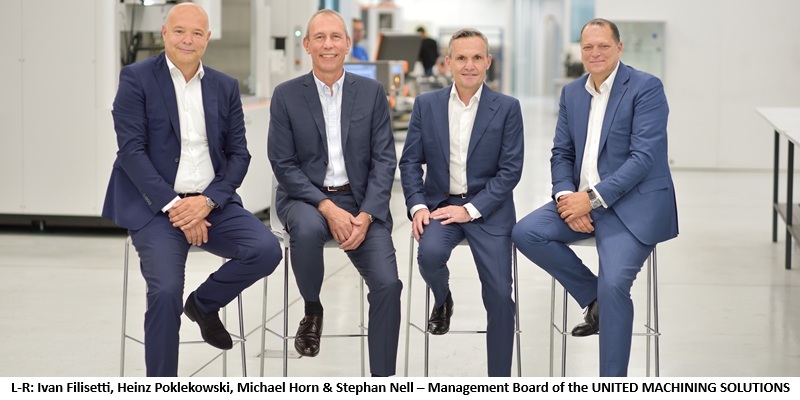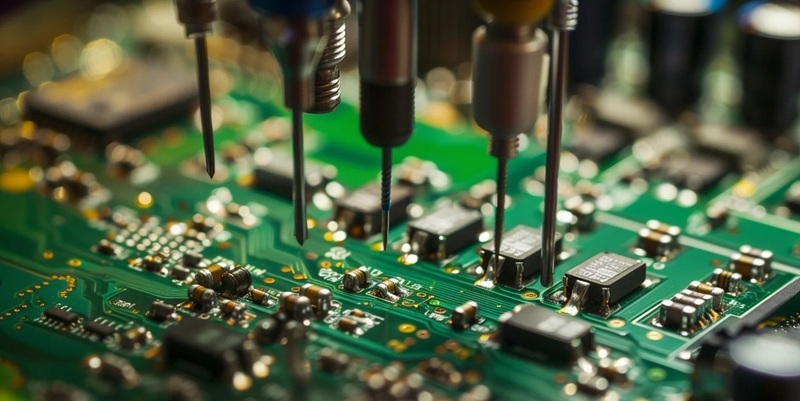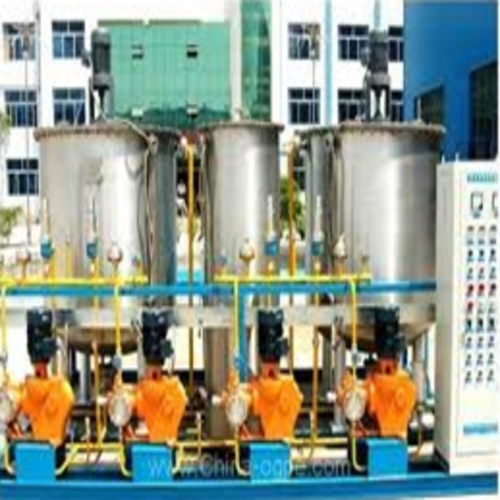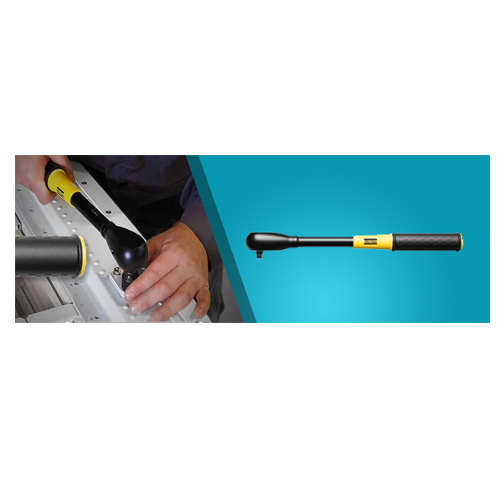Schedule a Call Back
Sustainable solutions for MRO industry
 Technical Articles
Technical Articles- Feb 01,17

At a recent Media Roundtable, the topic centred on MRO. What followed was an interesting discussion bringing forth a host of interesting developments.
Maintenance, Repair & Overhaul (MRO) – these three words represent one of the biggest opportunities of the industrial world. While original equipment manufacturers design and build a product or equipment, it is the operator or end user who has to ensure proper maintenance in order to maximise the returns. Today, in popular imagination MRO is associated with aviation, but that is a recent trend. MRO is in fact as old as the industry. The Media Roundtable was organised by Henkel Adhesives Technologies India Private Limited (a fully owned subsidiary of Henkel AG & Co KGaA), and a leading solutions provider for adhesives, sealants and functional coatings. MRO is obviously at the heart of Henkel’s business globally. The theme of the discussion was ‘MRO centre and its capabilities for better energy efficiency, protection of assets and preventive maintenance’.
In late 2013, Henkel inaugurated the India Innovation Centre in Pune – a first for the country. The state-of-the-art centre is equipped with customer component testing facilities, dispensing systems, application training, product development and engineering facilities and provides customers comprehensive adhesive solutions. In August 2016, the company expanded the centre with the addition of two dedicated laboratories, one for MRO and the other for Acoustic and Noise, Vibration, and Harshness (NVH).
Adhesives form one the most widely used product groups in the maintenance industry, and as the cliché goes, modern adhesives can mend anything with the possible exception of broken hearts. Together with sealants, adhesives are also very important in repair and overhaul activities. The use of adhesives brings in a significant reduction in the use of metals, while maintaining the structural integrity of the product. With light weighting a prime focus of many industries led by automotive, composites and adhesives are playing an ever more important role in the new product development process. “The per capita consumption of adhesives in India is still very low, just about one-fifth that of China, and far less than that of US or Germany. So we are creating the awareness by educating the customers and potential users,†said Pradhyumna Ingle, Business Director, General Industry, Henkel India.
Talking about the MRO Lab, Pradhyumna Ingle said, “Rather than relying on just theoretical calculations about the adhesion or sealing properties and their strength and impact of various operating conditions, at the MRO Lab we actually simulate all the conditions these products undergo during actual operation of the machines and equipment, and this is something very unique about this facility.†To do that the lab is equipped with various chambers and simulators to create actual operational conditions – dust, salt spray, vibrations, abrasion, etc.
“While the buzzword today is ‘Make in India’, but with this Henkel facility we are now focussed on ‘Innovate in India’, which is even more important. For many years India has been bringing in technologies across industry segments from the outside world, but now many companies, and that includes Henkel, are innovating in India and that innovation then goes to other countries,†said Pradhyumna. As example he cited Loctite 7350 – a Rapid Rubber Repair Solution used in conveyor belts in the highly demanding mining industry, developed in the India Innovation Centre and used across the world. This high abrasion resistance compound can withstand high temperatures up to 1200°C. Loctite 7350 is fast curing and self-levelling – making it an excellent choice for on-site repairs. Offering outstanding adhesion and abrasion resistance, repairs will have the same durability and flexibility as the rubber, increasing reliability and overall efficiency. Additional applications include but are not limited to repairing or rebuilding liners in mills, pumps, feeder bowls, hoppers, chutes, and repairing cast urethane screens and liners.
And it is not just the MRO Lab, but also the Innovation Centre that is crucial to Henkel’s plans for the Indian market. “We are fully committed to the Indian market, and that is not just about investing manufacturing in India – which is one of the 17 Henkel manufacturing sites around the world – but about the innovations, of which the development of polymer composite 7000 is but one example, which is now exported to other Henkel manufacturing sites,†said Dr Kourosh Bahrami, Corporate VP, Global MRO Industry – Henkel Group. India, being a large country with different weather conditions, is like a testing lab for global product development, especially for the emerging markets, which are in similar geographical locations. “Traditionally, these products were developed in Europe or North America, which have colder climates and then used globally. But most emerging markets have climate conditions suitable to India and that makes this place ideally suitable for new product development, products which are then exported to the other emerging markets. So we are now changing the rules and India is the No. 1 country for us – it is no coincidence that this is the first country I am visiting in 2017 – we are building on the rich DNA India has,†he added.
As for the user industry, Henkel caters to the entire industrial sector. From the down-to-earth humble mechanic working without a workshop to the most advanced aerospace facility, Henkel products are used in every industry. “A great thing about Henkel is the opportunity to work with industries that are extremely diverse – from automobiles and aircraft, electronics and lighting, automotive aftermarket, paper and pulp, cement and steel plants, power plants and chemical industries and the general industrial MRO segment, which means wherever there are machines with moving parts. And we do not just work with the big customers, but also address the smallest SME. Wherever there is a problem in such running machines there is a Loctite solution that can address the problem and help the customer to reduce the cost and improve the reliability factor,†said Pradhyumna. “Another advantage is the fact that Henkel is often involved with the development of new products right at the concept stage with many OEMs who use these products in the course of manufacturing. This means that many of the manuals, for example gearbox or pump servicing, recommend the particular Loctite product to be used during servicing and assembly,†he added.
All such developments and successes do not work in isolation. While there are standard products and solutions to routine maintenance issues, for certain problems that defy conventional solutions, the company works with the user industries to deal with such difficult problems. Henkel engineers routinely visit their OEM partners and identify areas of operations and opportunities where they can offer a better alternative to a conventional process of material, a more effective assembly process than what is followed currently. Pradhyumna quoted an example of a motor manufacturer who eliminated the use of fasteners to bond the magnets on the stator casing in the process reducing the weight of the motor, as well as increasing reliability. Another case is that of pumps where there are up to 15 applications using Henkel products. The most prominent example is gaskets, where solid gaskets do not get 100% contact with the mating surfaces, Henkel’s liquid gasket solves the problem with added reliability.
To facilitate such cooperation and educate the end users, Henkel also conducts a lot of training programmes and sessions by inviting them to the Innovation Centre and explain to them the various products and solutions. “The awareness about the capabilities of adhesives in India is still growing, still in early stage as mentioned earlier. So there is a huge room here, and Henkel being a market leader is playing a pioneering role in bringing that awareness. We train over 20,000 people every year through these training programmes and these people not only become the users of our products but also our ambassadors in further spreading this knowledge to their colleagues on the shop floor, creating more awareness,†said Pradhyumna.
“Engineers typically are trained to think of fixing things, not chemistry. So what we do is go to the universities or to the training cells within companies, and we train them in chemistry – very basic chemistry. We are the pioneers not only because we are the inventors of anaerobics and numerous sealants and adhesives, but also because we train them to use these products and replace other more costly and less efficient materials. We work with all the 800 industries engaged in manufacturing in the world – medical, electrical, electronics, transport – you name it. You know from the automotive or the aerospace industries that today we are using more and more substrates and composites – all these materials need adhesives. Also all the industries are not on the same stage of development – some are more advanced while others are just beginners. So we also bring the insights gathered from experience in one segment to the other,†said Dr Kourosh Bahrami. Pradhyumna gave the example of how the experience gained by working in the automobile industry for many years helped Henkel to offer a solution for railway coach manufacturing where use of alternative materials not only improved the NVH factor but also reduced the weight of an individual coach by 250 kg. Similar is the case with appliances – washing machines or dishwashers.
In a world now increasingly concerned about the environment, all Henkel products are environment friendly and the company claims to be committed to leadership in sustainability, which is deeply embedded in its values. Maintaining a balance between economic success, protection of the environment, and social responsibility has been fundamental to its corporate culture. “While the DNA of Henkel is sustainability, it is a proud moment that India is now at the forefront of developing our products,†concluded Dr Kourosh Bahrami.
Related Stories

UNITED GRINDING and GF Machining merge to form UNITED MACHINING SOLUTIONS
The new entity will be one of the world's largest machine tool manufacturers with $ 1.5 billion in sales.
Read more
Kinetic Communications opens automated controller manufacturing line in Pune
The new advanced automated controller line in Pune leverages Industry 4.0 technology to drive high-speed, precision manufacturing for next-generation smart EV electronics.
Read more
Aimtron Secures Rs 1 bn ODM Deal with Leading US Infrastructure Firm
Aimtron, an Electronics System Design and Manufacturing (ESDM) company, has signed a Rs 975.5 million ODM deal with a US infrastructure leader to develop advanced, transformer-free UPS systems for g..
Read moreRelated Products

Ozone System
Omnicorp Environs & Infratech Co offers a wide range of ozone systems.

SWR ’Slipping’ Wrenches
Reliable
Trade Links offers a wide range of SWR ’slipping’ wrenches.

Gripping Systems – Rgg
Schunk Intec India Pvt Ltd offers a wide range of Gripping Systems – RGG - cleaning
device with shank interface.














